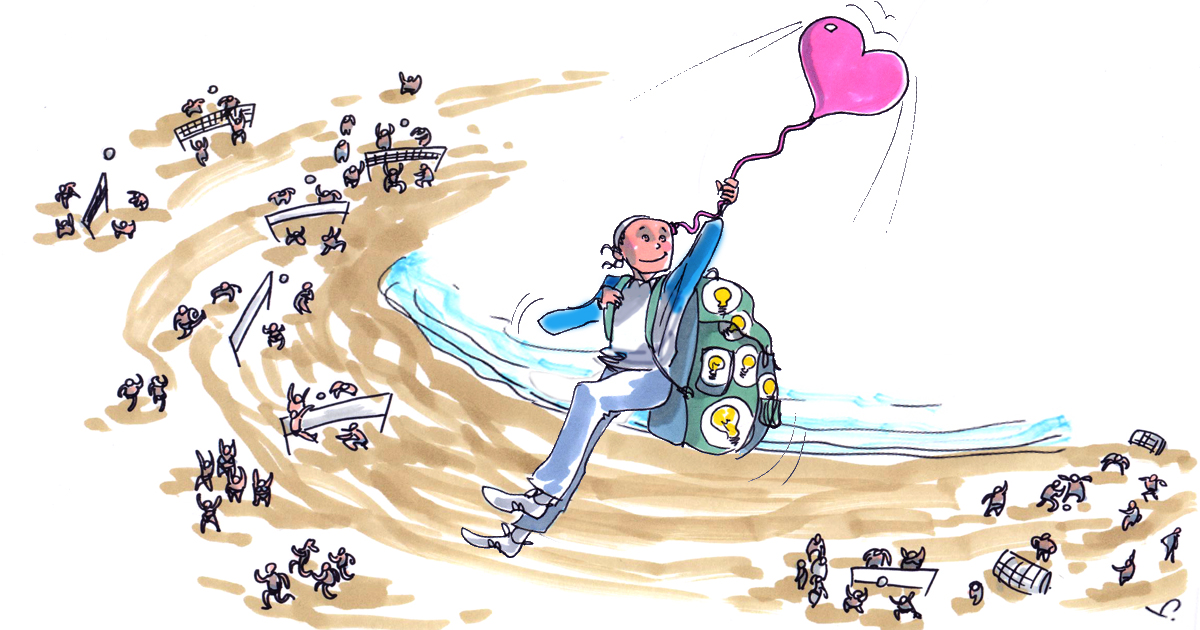The old lady beside me on the touring bus was a Jew from the USA. She was right out of Rhoda, or one of those impersonations Billy Crystal does. Fantastic and so entertaining.
As we toured the Holy Land, she was so full of energy and stories that helped enormously to pass the travel time. She was better than the younger official guide.
She “felt” the history of the Jew and the Israeli.
At the end of the day, she asks me if I’ve enjoyed what I’ve seen of Israel. (She didn’t know I’d spent 4 amazing years in the country with my friends at the Israeli football league, and I wasn’t going to break her flow with my own stories. She had a million better than mine).
“Yes, it’s been a very nice day.” I offered, with that famous British understatement. Actually, I’d be awaiting this tour of the Holy Land sights for a long time. And it was splendid.
This seemed to energize her a great deal and her comment confirmed this: “you see, and we still get such a bad press everywhere….”.
I nodded.
“A bad press everywhere”. Why is that?
I’m not going anywhere near Zionism and stolen lands; that’s well above my pay grade. All I’ll say is this. It’s complex, as anyone who visits Jerusalem understands in about 5 mins. A fifth of the Israeli population are Arabs, and some iconic towns like Nazareth are almost entirely Muslim. Get your head around that. Complexity like this shouldn’t lend itself to binary sloganeering. But it seems to.
To my chagrin, I stopped my regular work trips to Israel about 3 years ago, when my client and friend Oren Hasson (the big boss of the League) left to be annoyingly good somewhere else. My advisory work is very much of the “trusted advisor” type, and, as such, it often becomes linked to the individual.
So this week’s visit was a welcome return, for a sportstech event organized by the Government. I brought my family for a break. Their virgin views on Israel and Israeli brought my own into focus, and prompted this latest entry in the Albachiara Journal.
Isn’t that what a Journal is meant to be?
It is undoubtedly true that, what these guys here have created since ‘48, is astonishing. In a land with almost no natural resources, no water, and all its neighbors trying to push it back into the sea with tanks, they have built the StartUp Nation. Explained in the best-selling book of the same name by Senor and Singer, Israel is the classic SWOT country: turn weaknesses into strengths and threats into opportunities.
The archetypal problem solvers.
My bus companion had explained that well. “Don’t worry about how to cross the bridge now. We will work that out when it’s time”.
Confidence in getting things done.
From desalination to military tech; from adtech to sporttech. They are solving the problems of the next decade and beyond.
Where does that USP come from?
(As a Scotsman often asked about his kilt, and dourness, I’m not a friend of lazy generalization. So, if this thesis sometimes wanders into stereotypes, forgive me.)
In my opinion, the USP starts with the long military service, leading to that most precious asset for early stage companies: resilience. Combined to another outstanding attribute: they understand that the global society owes you nothing, and you’d better get really good to survive.
Loads and loads of dependency culture blowhards from the West should pay a visit to this amazing country. And then go back home and still see if they believe in the Universal Wage, credit card debt write-offs, and printing money.
The level of initiative, vision, determination, and tech skills I’ve seen here at Future Sport Israel knocks your socks off!
We are truly on the verge of a turning point, led by tech, creating so many opportunities for young people. It’s a great time to be good at physics, maths and coding.
In all this, I need to share another stimulating input about this place I enjoyed last week. I have the outrageous good fortune to have an occasional WhatsApp companion, who always takes my thinking to another place. He comes from the same upbringing as me, has travelled the world, has found a life partner from a different culture. A Glasgow reality filter for a complex world. Gold-dust.
Jim (Kerr of Simple Minds),
knowing my direct Israel experience, asked me a while ago about my views on the band accepting invites to perform in Israel. For a writer who has penned Mandela Day and Belfast Child, his ultimate decision will have nothing to do with commerce. “I just want to play my song, Jerusalem, with an orchestra of Arabs and Jews.” He sends me the song demo, as yet unpublished. We discuss the Wailing Wall and that crazy melting pot of the city.
If that concert hasn’t yet happened, it is understandable, when you see the “heat” so many artists get for coming here. Israel is complicated.
Israelis sadly often are not. And that, I think, is a problem that forms the kernel of this article.
See if you agree.
So many of the startups that pitched to us these days, I found short on the presentational side. Top marks on explaining tech and functionality. Even markets. Less so on understanding the objectives on the other side of the table. The other person’s buttons. Explained well in this article.
And if you do empathize with my objectives as an investor, can you communicate that with lightness and charm?
Here I find a “no”. Israeli are too often absolutely full-on, bordering on intense.
Tick box number 1 for an investor is always: do I like this person? Do I perceive I’d enjoy interacting with them?
I’m tempted to say that in today’s world,
Perception is reality.
But, actually, it’s always been that way. The wife of Caesar and all that. And this comes back to my bus companion’s comment. “…and yet we get such a bad press”.
Israel is perceived as the bad guy.
There is that wonderful infographic about the charming ambiguity of the Brits and how they express themselves.

The French, Italians, and even South Caroline folks, can also all overwhelm you with “charm”, to change your perspective. You know you are getting “played”… but, hell, it’s enjoyable.
The Israeli don’t seem to do this regularly. There is no foreplay. It seems often that they don’t know what this skill is; and if they do, they certainly undervalue it.
They of course will argue that if the value proposition is so strong, who cares about touchy-feely niceties, you’ll buy it anyway!! And that’s true. But why not push the odds as much as possible in your favour, especially at the margin?
Be likeable.
My Israeli colleagues, who have all abundantly disproved the above characteristics over these years, had warned me about the “coarseness” of this place. But still it can surprise you. Many relationships seem to start and end on a direct transactional quid pro quo basis. Too little time I feel is spent on “shooting the breeze”, on “small talk”.
That’s a shame. And this isn’t limited to Israel. So much is it prevalent, that there is a part in the Albachiara’s Influencing and Pitching Course that addresses this directly, through the Science of Persuasion. We explain, with our own direct examples in sport music and creatives industries, how this actually works.
Reciprocity
Commitment
Consistency
Social proof
Authority
Like-ability
Scarcity
Enjoy a 10-minute infusion of how to win friends and influence people.
Come to think of it, that’s a book for Israelis that could be as well-thumbed as the Start Up Nation. For an amazing nation, it’s their Achille’s Heel.
Maybe I will suggest a low-tech startup for this country to change that. A chain of “likability schools” based on the Science of Persuasion and on Soft Factors. We are actually developing a new soft skills-based training project with leading humanistic entrepreneurs and C-suite. In an era when technology prevails over anything else, the world has indeed lost its human and social abilities. And we believe it is time to put an end to it.
—————————————-
To see how we address soft skills development, see here.
To know more about how we lead change management and knowledge transfer in the digital age, see here.
To learn about our story, have a read here.



